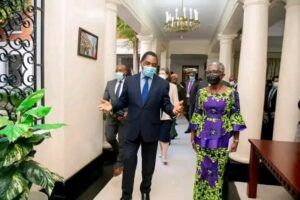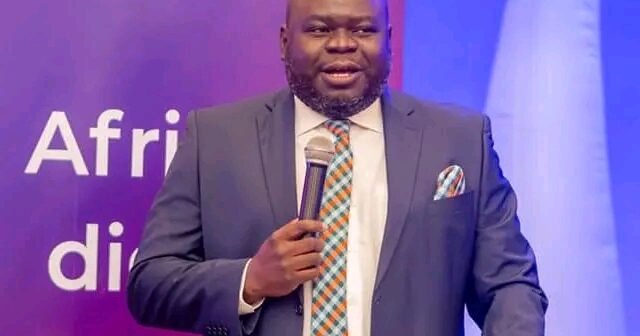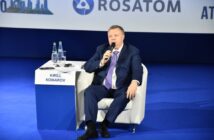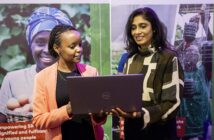
Doctor of Philosophy (PhD) Dr. Lubinda Haabazoka
IMF and Investor Confidence – Dr. Lubinda Haabazoka
…So why isn’t money flowing in and why is The Kwacha losing value even with “Papa and Mama IMF” on board?
By Dr. Lubinda Haabazoka
THIS article is not for political cadres but intellectuals that enjoy mature economic debate. The article is aimed at contributing to national economic development.
I never forget especially heated economic discourse. Today I want to address the issue of the International Monetary Fund (IMF) and investor confidence.
The whole country (Zambia) knows that I have never supported IMF packages. Those that argue for packages say that with the IMF on board, investor confidence increases and money flows into the country. Those against including me believe that IMF ties the hands of package recipients therefore removing space for innovation. Conditions are also harsh and detrimental to the livelihoods of citizens.
I know a number of economists that supported the IMF package but have gone underground. Hardly a few months after getting an IMF package, The Zambian Kwacha has lost value trading from K15.3 to K18.03 in a 2 month period. Negotiations with lenders have also stalled creating anxiety amongst various stakeholders. So why isn’t money flowing in and why is The Zambian Kwacha losing value even with “Papa and Mama IMF” on board?
Many economists unfortunately are locked up in economic theories that are heavily influenced by the Breton Woods mood. If maybe the IMF could deliver strong fundamentals in developing nations in the 80s or 90s, the IMF of today unfortunately has lost its influence and ability to positively affect economic growth in most member countries.
When the IMF was created, the global economy evolved around western powers. China was weak and the Soviet Union was in self isolation. Today however, China has even a much stronger influence in the global economy than the USA and Europe combined. Russia is also very much part of the global economy with Brazil, India and Middle East countries also moving away from western influence. The mood coming out of South Africa also indicates that the African National Congress (ANC) will be busy fighting western sanctions against Zimbabwe soon.
Against this background, a country that is on an IMF package today doesn’t really get the good image from investors that matter in modern day economics. Despite being members themselves, countries such as Russia, China, Saudi Arabia and other economic giants view the IMF as an institution that advances US economic influence around the world. So any country that rushes to the IMF sort of signals that they are tilting towards the west and as such, Chinese investments in particular dry out. This trend is usually copied by other countries with a similar ideology.
Today the Britain Russia India China South Africa (BRICS) block is being joined by Saudi Arabia, Egypt among other emerging economies. The BRICS bank with assets of over $100bn is being viewed as a possible successor of the World Bank. With Saudi Arabia joining BRICS, the world will have to forget about the Petro-dollar system and with it United States (US) global economic dominance. Empires last maximum 100 years. That’s what history has taught us. Turkey, Egypt, Greece, the United Kingdom (UK), Iran, Italy and even Mongolia had once dominated the whole world. But today, these countries are shells of their past.
The best approach for African countries is to draw up their economic development plans. Plans that will be independent of major influencers. Such plans should have a buy in of all citizens. A country cannot develop when half of the country is called opposition and the other half ruling. Development means everyone pulling in one direction. The best way to gain respect and attract investors from everywhere is to remain neutral. That way, investors from both worlds will come.
Today it’s an illusion to think a country can develop without China or Russia. China brings infrastructure and trade. Russia brings in energy and agriculture inputs. It’s also wrong to think a developing country can have it easy without Europe and the United States of America (USA). We still live in a Breton Woods economic system where are financial transactions are done from New York. For now, we are still tied up.
To conclude, the IMF cannot be a Saviour at this point. The only Saviour we have is ourselves. We need to create an environment of unity. Then create an environment for wealth creation. We need to create industries. Create jobs. Our Zambian people should have money! We need to uplift our Zambian citizens so that they are able to compete on the global stage. That should be our preoccupation now.
We also need to advise that cooperatives unfortunately cannot create wealth for now. We need to perfect the model if they have to succeed. Let’s consult widely. Listen more!
Thanks 🙏🏿
Notes on Author: “Dr. Lubinda Haabazoka is Director of the University of Zambia (UNZA) Graduate School of Business and former President of the Economics Association of Zambia (EAZ).
Dr. Haabazoka holds a Doctor of Philosophy (PhD) in Economics from Rostov State Economics University obtained under joint Government of the Republic of Zambia GRZ/Russian Government Scholarship.
Dr. Haabazoka has worked for Bank Vozrojdenie and Sberbank in Russia 2003-2005 and was Assistant Lecturer and Researcher in the Banking Department of Rostov State Economics University 2005-2009.
Dr. Haabazoka worked for the Copperbelt University (CBU) from 2010-2017 as Senior Lecturer and Head of the Accounting and Finance Department in the School of Business.
Dr. Haabazoka has served as non executive director on more than 7 boards including the NRFA, ZIPAR, NEAC, PAM among others.
Dr. Haabazoka is also an author of more than 4 academic books, over 30 research papers and over 18 book chapters in peer reviewed publications like Springer and De Gruyter.
He has advised and done research works for the Zambian government, World Bank, international Hedge Funds and banks and other legal entities.
Dr. Haabazoka has negotiated and structured project finance deals and contracts for various institutions worth over $600m.
Dr. Haabazoka has facilitated and presented papers at high level conferences including high level side meetings at the United Nations General Assembly in New York, Atom Expo in Sochi and International Atomic Agency in Austria. Dr. Haabazoka is convenor of the National Economic Summit in Zambia.
Dr. Haabazoka is a regular commentator on national and international economic issues published with CNN, Bloomberg, Financial Times, DW, SABC, Russia 24, CCTV, ZNBC, Voice Of America among others”.

On Tuesday, 14th June, 2022, President Hakainde Sammy Hichilema met International Monetary Fund (IMF) Deputy Managing Director Antoinette Monsio Sayeh at State House




